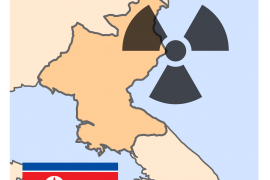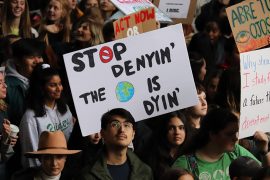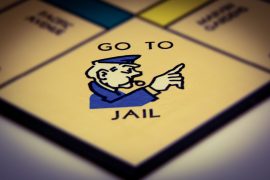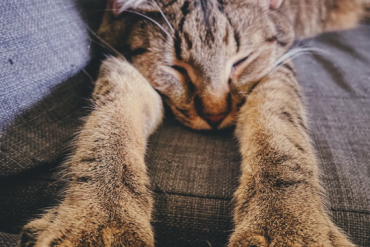Young Chechen men sat in shock after the Novaya Gazeta, a prominent newspaper in the region, released a story about the Chechen government jailing homosexual men. The building they’re hidden in is a safehouse for LGBTQ people in Chechnya to hide from the police and public. It’s a clean building with unadorned, multicolor walls. Fearing recognition, they requested to hide their identities, and pull hoodies over their eyes. One of the men detained in late 2016 says, “I got really scared because I knew what would happen next. I knew what they were going to do. They dragged me out of the car and started to beat me, humiliate me. They called me a faggot, a gay person, and that such people shouldn’t exist in Chechnya.”
The world’s magnifying glass over Chechnya has grown larger and larger since stories of LGBTQ harassment and imprisionment broke on April 1, 2016. A reported 100 men have been detained and tortured. They have been allocated into surreptitious camps which have been likened to the concentration camps used by Nazi Germany during World War II. Allegedly, the penitentiaries have been found in two cities: Argun and Tsotsin-Yurt.
After Novaya Gazeta released the article in early April, they immediately came under fire of Chechen government officials and local Muslim preachers, followed by death threats to the reporters. Spokesperson for the President of Chechnya, Alvi Karimov, told the press that the reports were an “April Fools Joke,” aligned with how the government is handling the issue. Despite reports of cruel and inhumane aspects, the Chechen government describes the happening as “preventative clean-up,” while claiming that, “you cannot arrest or repress [sic] people who just don’t exist in the republic.”
Chechnya is a state that is 95 percent Sunni Muslim. Historically, most Muslim states have acknowledged and tolerated same sex relationships, but levels of tolerance vary. Some countries, such as Syria, Iran, and Afghanistan, are more understanding while other countries, like Iran and Saudi Arabia, prosecute acts of sodomy and homosexuality. Very few prosecutions occur, however, due to the cultural view that homosexuality is a Western development and doesn’t affect Muslim societies.
The word Genocide was coined by Raphael Lemkin in 1944 and defined in 1951 by the “Convention on the Prevention and Punishment of the Crime of Genocide” as: any of the following acts committed with intent to destroy, in whole or in part, a national, ethnical, racial or religious group, as such:
- Killing members of the group;
- Causing serious bodily or mental harm to members of the group;
- Deliberately inflicting on the group conditions of life calculated to bring about its physical destruction in whole or in part;
- Imposing measures intended to prevent births within the group; (i.e.) Forcibly transferring children of the group to another group.
Though the definition lacks representation for gender or sexual orientation, the Chechen Camps still fit three out of the four definitions: there have been four reports of death in the camps, numerous claims of abuse, and the direct targeting of LGBTQ people. This spurs a continuation of corruption allegations against Kadyrov, harkening back to the death of oppositional Russian leader Boris Nemtsov and journalist Anna Politkovskaya, who both spoke out against the autocratic Russian regime.
The acts have been internationally condemned. The House of Lords of the United Kingdom congregated and Sir Alan Duncan stated that these camps are “barbaric…beyond contempt and not acceptable.” Canadian officials say that “persecution of LGBTQ+ people in Chechnya [is] reprehensible.” Similarly, over half of the French presidential candidates have denounced the camps. In the United States, The State Department has conveyed concern; President Trump has not commented on the camps. On April 13, the United Nations publicly condemned Chechnya and called upon them to put an end to the camps.
When questioned about the camps on April 14, Russian representatives said that there was not substantive proof and showed no desire to act on the news. Russia adopted anti-LGBTQ propaganda laws in 2013. Lethargic government action has incited the Russian LGBTQ community to help, with assistance from Canada’s own non-profit gay rights program, Rainbow Railroad. Mass solidarity for the LGBTQ community in Chechnya has flooded social media but the global continuation of violent homophobic behavior still runs rampant.





